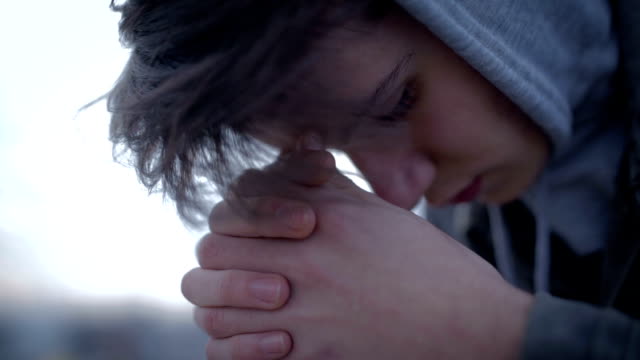
Depression for teenagers is skyrocketing during the pandemic. This makes sense when we look at the developmental milestones of adolescences. Socialization, a need for independence, and beginning to find self-identity are three big components of adolescences. It’s not surprising that the loss of social interaction is wrecking havoc on teenagers.
Signs of Teenage Depression

If you are a teenager or parent of a teenager, it’s very important to know the warning signs of teenage depression. These include:
- Sadness or hopelessness
- Irritability, anger, or hostility
- Tearfulness or frequent crying
- Withdrawal from friends and family
- Loss of interest in activities
- Poor school performance
- Changes in eating and sleeping habits
- Restlessness
- Feelings of worthlessness
- Lack of motivation
- Apathy
- Fatigue
- Difficulty Concentrating
- Complaints of physical pain
- Thoughts of death or suicide
Helping Your Teenager
If you are a parent or caregiver of a teenager and you have noticed any of the above symptoms, there are things you can do to help. First, understand that we are living in unprecedented times. The sudden shift in routine and lack of social support is hard for your teenager.
- Show Empathy–talk to your teen. Let them know you understand that things are difficult. Let them know you are there to support them. That you love them and want the best for them.
- Be Gentle-learn to listen to your teen and approach them with gentleness. They may avoid connecting with you or speaking to you. Be persistent. Don’t become frustrated. Gently reach out and let them know you want to be there for them.
- Encourage Connection with Friends--encourage your child to connect with friends via phone, video chat or text messaging.
- Establish a Routine–do your best to help your teenager maintain a routine. Involve your teenager in establishing this routine. Encouraging them to share their thoughts can be incredibly helpful. Make sure to add in time for healthy meals, exercise, getting outdoors, and proper hygiene.
- Limit Electronics (to a point)– there are huge bodies of research that show excessive screen time is detrimental for developing brains. Even if your teenager is older, there brains are not fully developed. Brains are not fully developed until the mid 20s. With that in mind, schoolwork and social connections are happening via electronics. Be aware. However, teenagers don’t need to spend 6, 7, or 8 hours playing video games to “connect online with friends.” They can pick up the phone and call (old school I know). Also, if your teen is struggling to maintain appropriate sleep hygiene because they are taking their cell phones or tablets to bed and texting, snapping, etc, with friends until early hours of the morning, limit their ability to take their electronics with them when they go to bed.
- Lower Expectations–this can be quite tricky. Teenagers have different circadian rhythms then adults. These rhythms are what control our sleep patterns. In general, teens are wired to stay up late and sleep late. Be mindful of this. That does not mean, however, that your teenager should be staying up until midnight, 1, 2, or even 3 am and then sleeping until the following afternoon. At the same time, expecting a teenager to go to bed at 9 pm and fall asleep by 9:30 is fairly unrealistic. Split the difference, and find a happy medium. Similarly, just because your child is now home during the day, it’s fairly unrealistic to expect that child to spend 4-5 hours on schoolwork, and then 2-3 more hours each day doing chores around the house. It’s also unrealistic to expect your child to want to spend any and all free time with the rest of the family. Remember, adolescence is a time when children are learning how to become independent, and they begin withdrawing from family. Again, that does not mean that they should be spending every moment alone in their bedrooms.
- Know When to Seek Professional Help–if you are noticing increasing symptoms of depression, seek out professional help. Include your child in seeking treatment options. Stay involved in your child’s care.
- Take Care of Yourself–as parents/caregivers, it is easy to become overwhelmed and forget to take care of yourself. Especially with the unknowns related to the current pandemic. However, it’s vitally important that you take care of you and your needs as well. If not, you’ll be ill equipped to help your hurting teen. Reach out to friends for support. Make sure you are eating, sleeping, and exercising well. Engage in activities you enjoy. Manage your stress. Reach out to a professional if you are struggling.
Tips If You Are a Teenager

If you’re a teenager and you think you might be depressed, there are some things you can do. First, it’s important to remember that if these feelings have just started since the changes related to the pandemic, chances are you may be struggling with situational depression. This would be very normal given everything going on. Secondly, it is important to talk to your parents about this so you can get support and help in managing everything. With that, here are somethings you can do for yourself:
- Sleep well—
 turn off the electronics and go to bed before midnight. As a teenager, you will need between 8-10 hours of sleep each night. Figure out what time you need to wake up, subtract 10 hours, and aim to go to bed at that time. Turn off electronics at least 30 minutes before bed. Electronics have blue light which tells our brains to wake up. Instead of electronics, focus on a relaxing activity before bed. This may be a warm shower, reading a book, and practicing mindfulness.
turn off the electronics and go to bed before midnight. As a teenager, you will need between 8-10 hours of sleep each night. Figure out what time you need to wake up, subtract 10 hours, and aim to go to bed at that time. Turn off electronics at least 30 minutes before bed. Electronics have blue light which tells our brains to wake up. Instead of electronics, focus on a relaxing activity before bed. This may be a warm shower, reading a book, and practicing mindfulness. - Eat well–it may be tempting to eat all of those quarantine snacks your parents have hidden away, but that could actually make your depression worse. Focus on healthy, balance meals. Occasional junk food is ok, just don’t eat it all the time. Balance, balance, balance. Make sure you are eating plenty of fruits, vegetables, nuts, and lean proteins.
- Exercise–exercise releases endorphins which help us feel happy. This is extremely important if you’re feeling depressed. Take a walk outside. Ride your bike. Rollerblade. Run on a treadmill. Practice yoga. Do pushups, jumping jacks, sit ups. Lift weights. The possibilities are endless. Schedule in at least 30 minutes of exercise every day.
- Stay connected–connect with your family and friends. You can video call your friends. It’s not the same as seeing them in person, but it’s an ok substitute. Of course you can always text, snap, IG, DM, or tictoc. But be mindful of your time in front of electronics. You may need to pick up the phone and actually call a friend if you’ve spent too much time in front of a screen. Weird. I know. But it’s definitely a way to stay connected.
- Plan fun activities–you may be on stay at home orders, but that doesn’t mean you can’t have fun. If you like art, create some art. If you like nature, go outside and enjoy the fresh air. Read a good book. Learn a new skill. The possibilities are endless.
- Practice mindfulness–start a daily mindfulness practice. This can be deep breathing, yoga, stretching, mindfulness, meditation, guided imagery, etc. A quick google search will give you endless possibilities.
- Seek help–if your depression is worsening, or you have thoughts of suicide, please seek help right away. Talk to a trusted adult. Ask your parents about connecting with a professional counselor. Call 911 or the national suicide hotline (800-273-8255) if you are in immediate danger.

If you are unsure where to start, or you feel that you have been progressively feeling worse and worse, please reach out. If you want to connect with me personally about teletherapy services email me at: kjdemuth@gmail.com.
To Health, Hope, and Healing,
Krista

Hey there! Someone in my Facebook group shared this site with us so I came to give it a look. I’m definitely loving the information. I’m bookmarking and will be tweeting this to my followers! Exceptional blog and outstanding design.
Your style is really unique in comparison to other folks
I’ve read stuff from. I appreciate you for posting when you have the opportunity, Guess I will just bookmark this page.